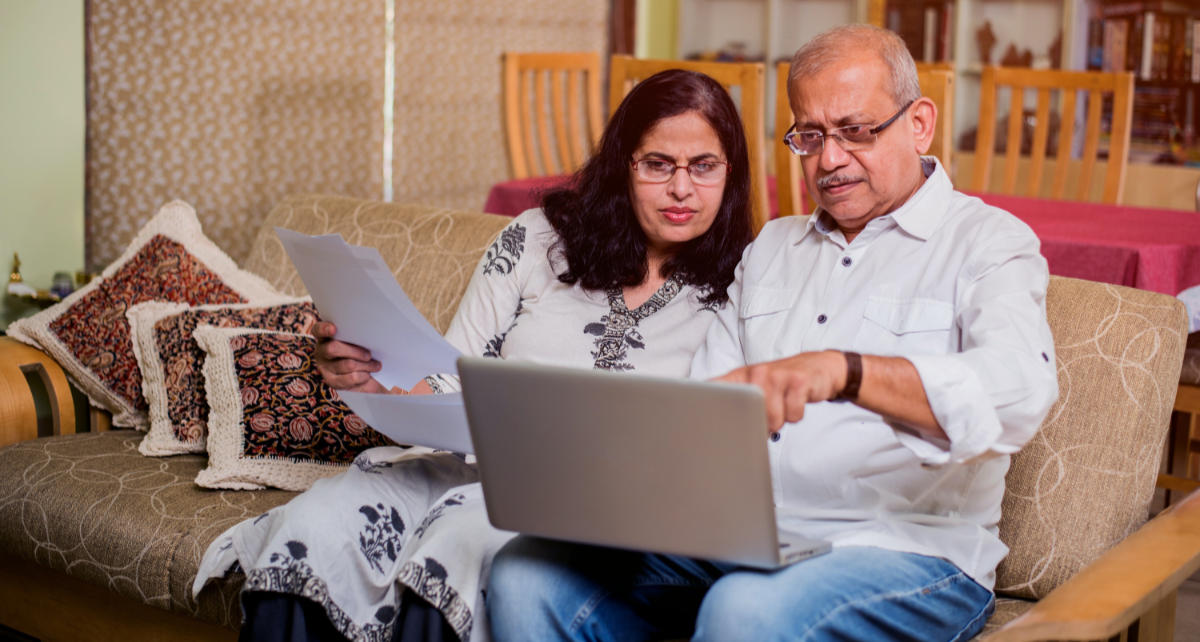The coronavirus crisis is providing fresh opportunities for fraudsters to strike, particularly as people are now spending more time at home – which means there has been an increase in the number of coronavirus scams and cons online, via email, over the phone and even face-to-face.
Whether it’s con artists appearing on the doorstep and posing as good samaritans, or bogus emails and phone calls received while people work at home from laptops, criminals are cynically trying to cash in.
“Scams are among the most prevalent types of crime in the UK, so it is seriously worrying that coronavirus is creating a perfect environment for fraudsters and scammers to thrive using a range of loathsome tactics,” says Kate Bevan, Which? Computing editor.
Recommended: Identity fraud – how to get your money back.
Many people may fall for #onlineshopping scams as they self-isolate during #COVID19 by buying goods from sellers that never arrive. #TakeFive before making any purchases and read online reviews to check websites are genuine.
To find out more visit: https://t.co/SyjoMlTm8K pic.twitter.com/SDK4LrbF87
— Take Five (@TakeFive) March 25, 2020
“Help protect yourself by being extra cautious before clicking on any unsolicited emails and texts or answering calls. Make sure your computers, mobile phones and tablets are supported by the latest security updates, and consider installing antivirus software to minimise threats,” Bevan adds.
Coronavirus scams and cons – how to spot a scammer
Here’s a look at what’s been happening and how you can protect yourself…
Online coronavirus scams – what to look for
If you see an item you’ve been searching for is in stock online, it can be tempting to just snap it up. But before you click the buy button, bear in mind that Action Fraud says many reports are related to online shopping scams, where people have ordered protective face masks, hand sanitiser, and other products, which have never arrived.
More information on how to shop online safely is available on their shopping online safely guide.
Police are also warning people to watch out for loan fraud, where ‘fast loans’ are offered and the victim pays a fee up-front after being told it is to cover insurance for the loan. But the loan never arrives.
Recommended: Prevent identity theft – 12 ways to stop identity fraud.
We have been informed some parents have received an email stating:
‘As schools will be closing, if you’re entitled to free school meals, please send your bank details and we’ll make sure you’re supported’.
This is a scam email – do not respond, and delete immediately. pic.twitter.com/r6cJP28dyY
— Department for Education (@educationgovuk) March 24, 2020
How to spot coronavirus email scams
Coronavirus-themed phishing emails are a real threat. They attempt to trick people into opening malicious attachments, which could lead to personal details, email logins, passwords and banking details being stolen. They may appear to come from credible health organisations and claim to provide the victim with information on active infections in their area.
Also beware of fake refund emails, whether it’s a bogus email claiming to offer a tax refund from HM Revenue and Customs (HMRC), or refund scams claiming to be offering money back for cancelled trips.
Meanwhile, some parents have also reported receiving bogus emails asking them to send their bank details in order to receive free school meals.
The Chartered Trading Standards Institute (CTSI) has also heard reports of fake apps, which claim to provide updates on coronavirus. They may contain ransomware, which upon downloading, locks the phone and displays a message demanding that the user pays up to unlock it.
Do you #StopChallengeProtect when being asked for money or information?
Take the right steps to protect yourself from fraud and scams.#TakeFive https://t.co/MC8D4rNVtS
— Take Five (@TakeFive) March 25, 2020
How to deal with doorstep tricksters
When people are home alone and family and friends aren’t around, they may find themselves particularly vulnerable to approaches from strangers calling door-to-door. For example, if you get a knock on the door from someone claiming to be raising money to help others during the coronavirus crisis, beware of charity scams, where fraudsters pose as street fundraisers.
Another cynical trick highlighted by National Trading Standards is criminals pretending they will do someone’s shopping for them and disappearing with the cash.
People turning up on the doorstep may also offer fake items, with fake sanitisers, face masks and swabbing kits being sold door-to-door as well as online. And it’s not just your cash that’s at risk – these products can often be dangerous and unsafe.
Recommended: Social media safety – tips for keeping safe.
Investment and pension scams
Criminals will prey on people’s financial worries. With recent stock market volatility, many savers will have concerns about their pensions and investments. So watch out for fake offers of investment and trading opportunities to ‘take advantage’ of the downturn.

Baroness Ros Altmann, a former pensions minister, points out that people being tricked by pension scams typically lose around £80,000. “As more people are forced to stay at home during the current coronavirus crisis and investment markets have plunged, the risks of cold-calling criminals or online fraudsters reaching more savers and luring them into scam investments have grown,” she says.
Above all, don’t let yourself be rushed or panicked into going ahead with any financial decision, big or small, whether it’s due to someone knocking on your door, texting, emailing or calling you.
Allow yourself time to think, and follow tips from Take Five to Stop Fraud.































































